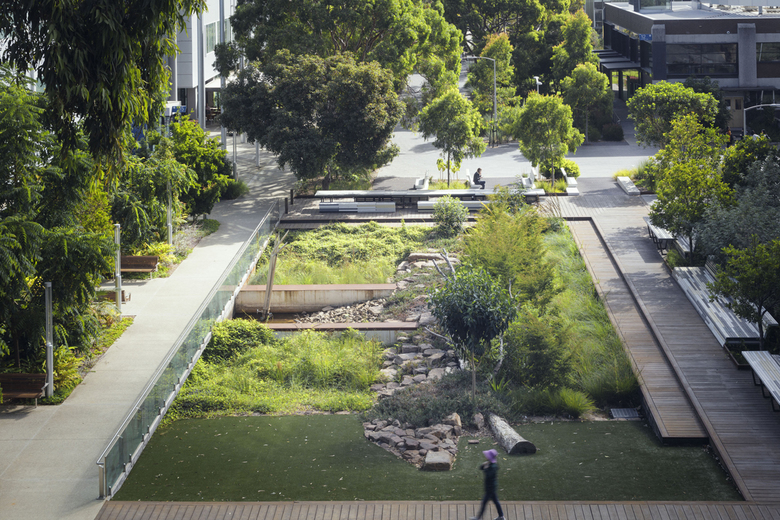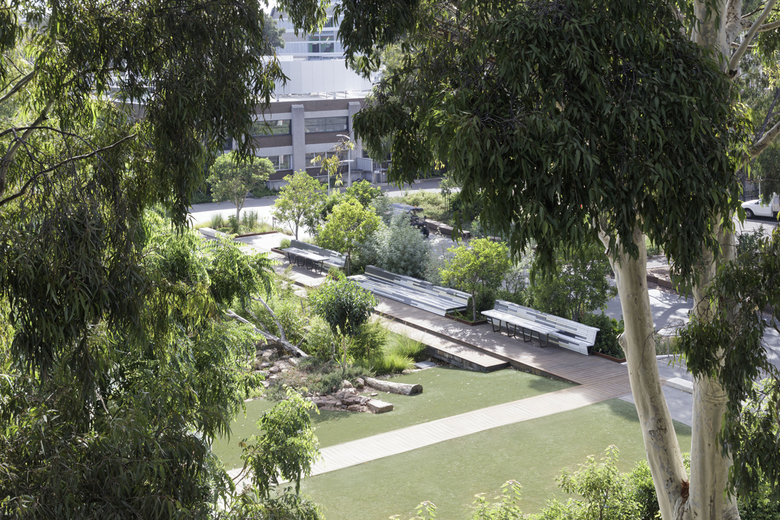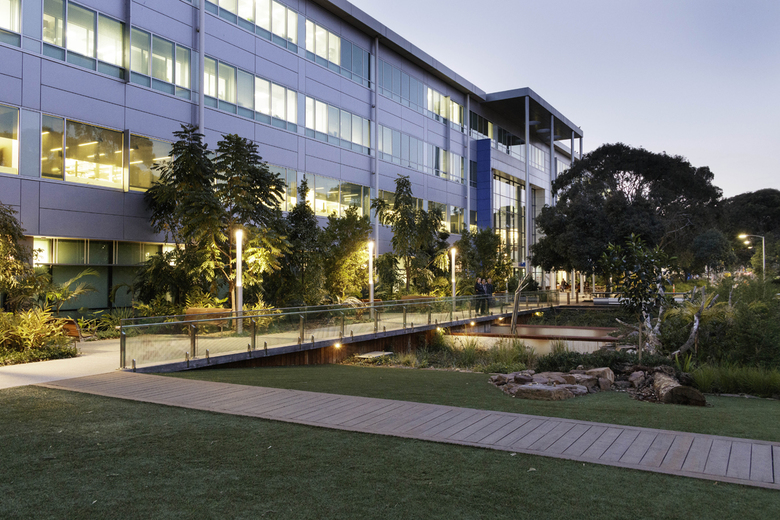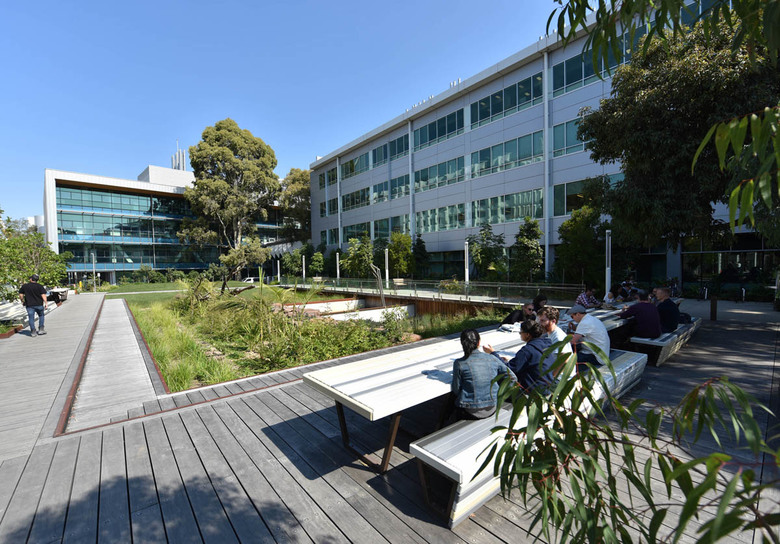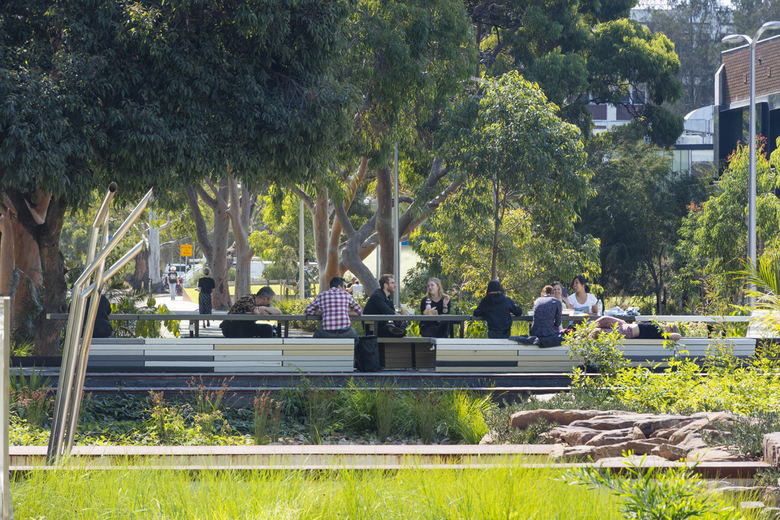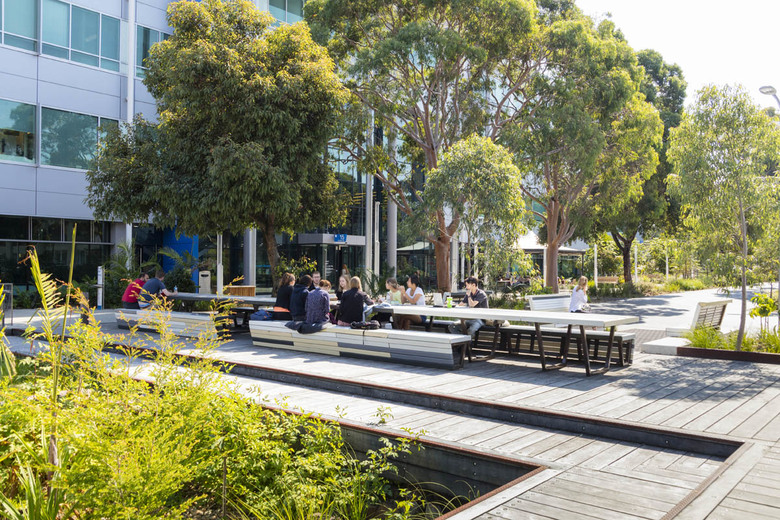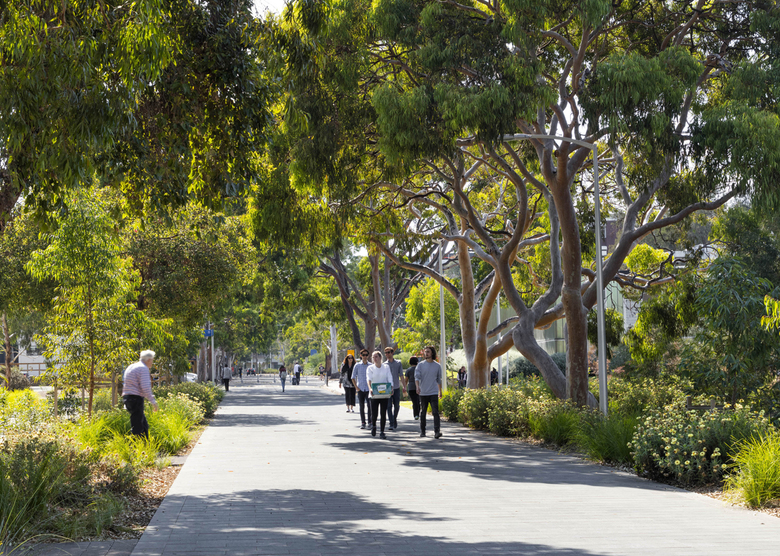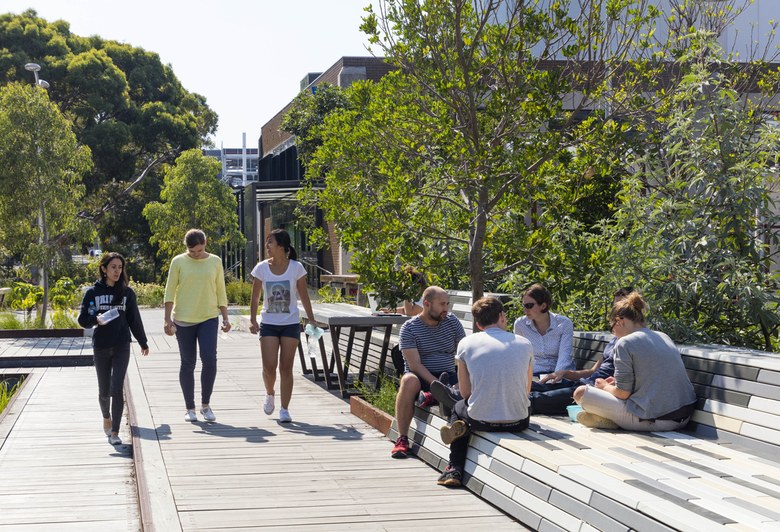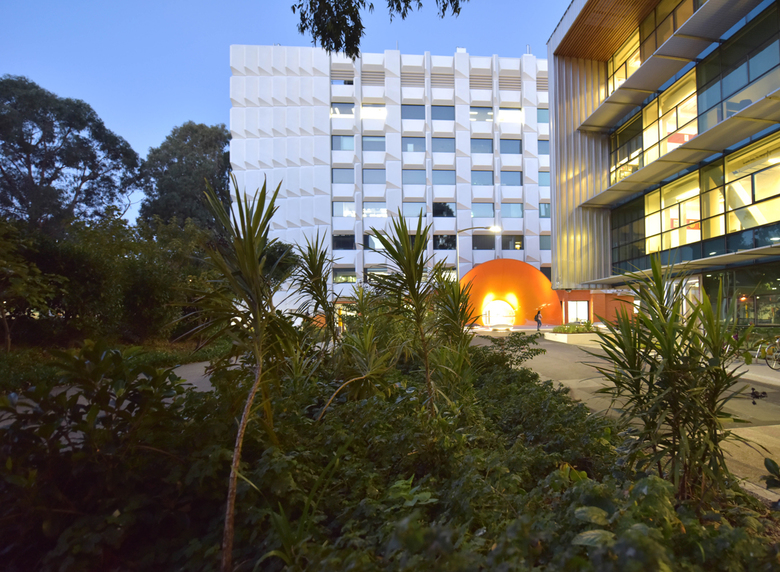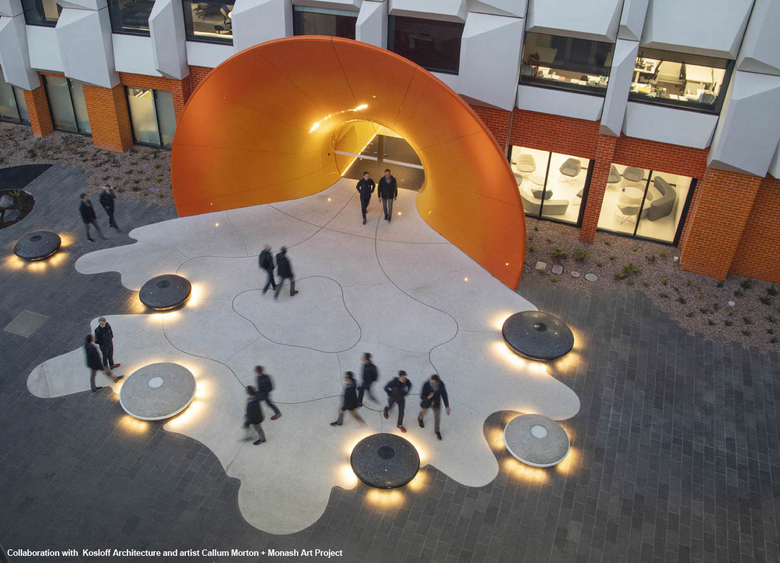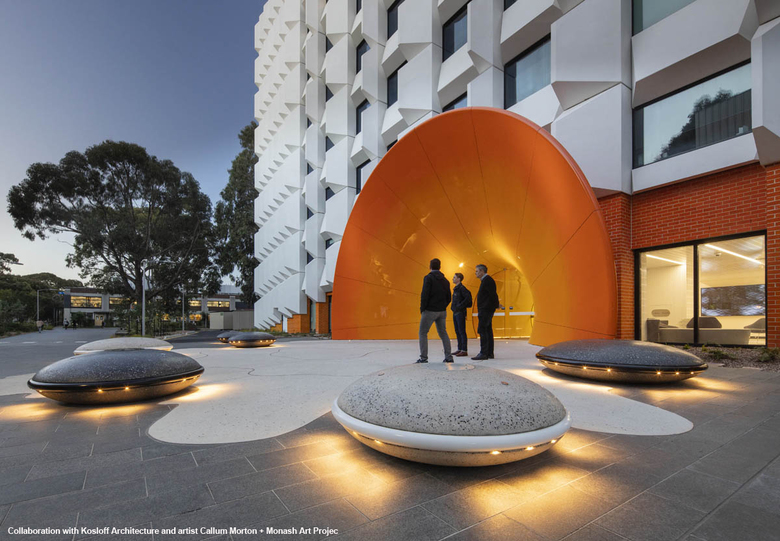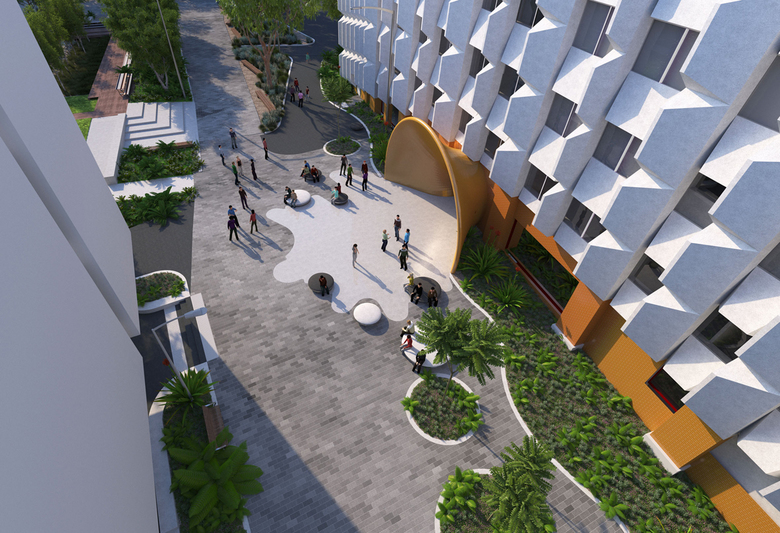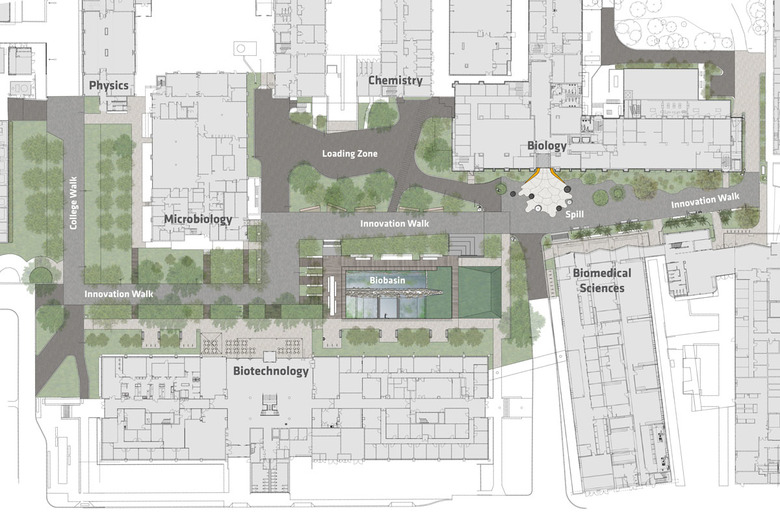Monash University Western Precinct Landscape
Volver a la lista de Proyectos- Ubicación
- Wellington Rd, Clayton VIC, 3800 Clayton
- Año
- 2018
- Cliente
- Monash University
- Civil, Structural, Hydraulic, and Electrical Engineer:
- Wood & Grieve Engineers
- Project Management
- TSA Management
- Access Consultant
- Architecture & Access (Aust) Pty Ltd
- Wetland Specialist Engineer
- E2 Design Lab
- STRIP Lighting Design
- NDY Light
- STRIP Cost Planning
- Donald Cant Watts Corke
- STRIP Planting Design
- Plant Design Pty Ltd (Paul Thompson)
- 18 Innovation Walk Architect & Artists
- Kosloff Architecture + Callum Morton + Monash Art Projects
- Contractor
- PTA Landscapes Pty Ltd
Monash University Science Technology Research and Innovation Precinct (STRIP) at Clayton campus realises a 20 year masterplan vision. The project was designed and delivered in two stages over a period of four years. Each stage was delivered in concert with major building redevelopments to produce cohesive, curated and seamless outcomes. The project completes a significant part of the campus’ distinctive primary walk network, extending the roll-out of Monash standard, pedestrian-oriented materials and finishes into what was a car-dominated and under-capitalised part of the campus.
The Stage one Biobasin was initially conceived as a Feasibility Study in 2009/10, just as the ‘millennial’ drought was reaching its apogee, then breaking. In landscapes around Melbourne, the focus was on water conservation, resilience and sustainability. At Monash University, the CRC for Water Sensitive Cities had been established in the STRIP buildings adjacent. The Biobasin is significant for being one of the first contemporary landscapes at Monash, to embed academic research and knowledge into practice on campus; pursuant to the idea of the campus as a living laboratory.
The parti is a wetland and swale. The wetland accepts rainwater from adjacent roofs, while the swale accepts stormwater runoff from adjoining walks. A tank stores the treated results, which are used for biological experiments. The design is deliberately artificial, made like a ‘slice’ through a semi-natural system. Weirs and rock batters define the two watery zones.
The award jury cited the project as: “Stage one shows a meaningful commitment to sustainability and the principles of WSUD, while at the same time offering a calm sense of place for students, with seating for individuals and groups integrated into the design. Stage two reads as a distinct landscape space, with curved edges relating the design to The Spill. The jury commends the design team for its playful yet sensitive approach to program, thoughtful planting and robust design solution.”
